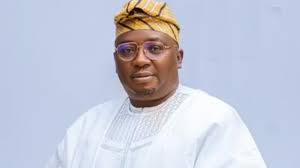By Hosea Parah, Abuja
At the High-level Roundtable on Sustainable Hydropower in Abuja, Nigeria, Chief Adebayo Adelabu, the Minister of Power, emphasized the importance of sustainable hydropower development in addressing the energy access gap and climate change challenges in Africa.
The event, organized by the African Development Bank, brought together government officials, experts, and distinguished guests to explore the potential of hydropower as a clean and sustainable energy source for Africa’s economic development.
“Currently, over 600 million Africans, accounting for 43% of the total population, lack access to electricity, with Nigeria alone having over 85 million people without electricity. This lack of access hampers economic growth and human capital development”
“Africa has a vast hydropower potential estimated at around 340 GW, but only 11% of this potential has been utilized. This presents a significant opportunity for responsible and sustainable hydropower development to improve energy access and increase renewable energy penetration.” He said.
Nigeria, with its abundant water resources, has contributed significantly to its energy supply through hydropower, accounting for about 20% of the total grid supply. However, there is still untapped potential, with only about 15% of the estimated 14 GW hydropower potential explored. Chief Adelabu highlighted the need to optimize existing dams and tap into the untapped capacity of small and large-scale hydropower projects.
He further stated that to achieve sustainable energy access for all Nigerians by 2030, the Federal Government aims to generate 30 GW of electricity, with 30% coming from renewable energy sources. The government is collaborating with the World Bank on the Sustainable Power and Irrigation Project for Nigeria (SPIN) to improve the utilization of existing storage for irrigation and hydropower generation.
Chief Adelabu emphasized the importance of responsible development, addressing environmental concerns, ecosystem disruption, and the social impacts on local communities. He called for a commitment to sustainability, stakeholder engagement, and innovative financing to overcome these challenges.
The High-level Roundtable served as a platform for collaboration and innovation in sustainable hydropower development. It highlighted the need for comprehensive strategies, robust policy frameworks, research and development of tailored technologies, and raising public awareness.
Chief Adelabu urged all participants to work together in unlocking Africa’s hydropower potential and building a sustainable and prosperous future. The Roundtable concluded with productive discussions and a renewed commitment to the development, utilization, and management of Africa’s hydropower resources for the benefit of current and future generations.

